Undergraduate
Our Undergraduate BBA-LLB (Hons.) course is structured to ensure comprehensive education and professional growth, preparing students for successful careers.
BBA - LLB (Hons.) Course
The School of Law at MIET is the first in the UT of J&K to offer the BBA-LLB (Hons) program, addressing the growing demand for skilled legal and paralegal professionals. With highly qualified, committed faculty and staff, the School of Law aims to become a leading institution in legal education, training, and student development, offering a unique blend of law and business studies with a global perspective.
BBA LLB (Hons.) Curriculum Overview
Our curriculum is designed with a strong foundation in course content, innovative teaching methodologies, and cutting-edge research. Students benefit from experiential learning and interaction with peers from diverse backgrounds.
Curriculum Years:
- BBA LLB (Hons.) Curriculum 2022-27
- BBA LLB (Hons.) Curriculum 2021-26
- BBA LLB (Hons.) Curriculum 2020-25
- BBA LLB (Hons.) Curriculum 2019-24
- BBA LLB (Hons.) Curriculum 2018-23
The program structure equips law aspirants with a deep understanding of legal education, enhancing their interpersonal communication skills and providing comprehensive knowledge of industry acts and laws.
Course Structure:
- Law Courses: Starting from the first semester, the curriculum includes 20 compulsory law papers, 4 clinical papers, 6 optional papers, and 8 specialization papers. The curriculum covers emerging areas such as Artificial Intelligence & Law, Entertainment Law, Advanced Intellectual Property Law, Internet Law & Governance, and Privacy Law.
- Integrated Degree: The first degree is not awarded separately; completion of the integrated course is required for the combined degrees. The first degree consists of 20 non-law papers covering major domains of business education, including Management Theory, Business Analytics, Business Communication, Critical Thinking, Business Accounting, and other business subjects.
- Student Exchange Programs: The law school is formalizing student exchange programs in Europe, the US, Canada, China, Japan, and Singapore to provide global exposure for students.
Detailed Course Components:
- Core Law Papers: The BBA LLB (Hons.) course offers 26 core law papers, including subjects such as Legal Methods, Law of Torts, Constitutional Law, Family Law, Company Law, Property Law, Labour & Industrial Law, and Public International Law.
- Management Papers: The program offers 13 first-degree papers, including compulsory subjects like Business Accounting, Strategic Management, International Business, and Corporate Finance.
- Clinical Papers: The syllabus includes 4 clinical papers that allow students to apply theoretical knowledge in practical settings. These include Moot Court Clinic, Alternate Dispute Resolution, Professional Ethics, and Drafting, Pleading, and Conveyance.
- Mooting: Students benefit from the faculty and student-administered Moot Court Committee, which selects in-house teams for external participation. Moot court is a compulsory 1-credit course starting in the first academic year of the law program.
- Interdisciplinary Work: Students gain knowledge and experience in an interdisciplinary university environment, exploring areas such as artificial intelligence, entertainment, the Internet, surveillance, air and space, and privacy.
This comprehensive curriculum ensures that our students are well-prepared for the legal profession, equipped with both theoretical knowledge and practical skills.
Internship and Placements
Gain hands-on experience through a mandatory 4-week internship every year.
MIET-SOL has established an Internship and Placement Committee (IPC) to manage and oversee student internships and placements. The IPC enhances internship opportunities in various legal institutions and focuses on placing students in esteemed organizations.
MIET-SOL is building a network of law firms, corporates, policy think-tanks, and other legal stakeholders to facilitate internships across different geographical zones. These internships will help shape students’ career aspirations and connect them with potential partners for final placements.
Avenues of Placement:
- Law Firms
- Senior Law Practitioners
- Judicial Offices
- Civil Society Organizations
- Parliament and State Legislature Committees
- Government and Local Bodies
- Market Regulatory Agencies
- Legal Regulatory Authorities
- Corporates
- International Organizations
Program Outcomes (POs)
- Legal Knowledge: Graduates will acquire a comprehensive understanding of complex socio-legal issues, the Indian legal system, including the Constitution, legal institutions, and federalism, to effectively contribute to the development of common law.
- Career Planning and Decision Making: Excel in career paths, adapting to business changes through decision-making.
- Critical Thinking and Leadership: Explore business problems, demonstrate leadership, and pursue knowledge for success in dynamic environments.
- Team Building and Communication: Communicate effectively and perform roles efficiently as individuals or in teams.
- Application of Statistical and Analytical Tools: Gain contemporary knowledge and develop skills for managerial practice.
- Life-Long Learning: Engage in independent, lifelong learning in the context of technological change.
Specializations Offered
Program Specific Outcomes
- Demonstrate Knowledge: To produce graduates having a strong background of basic understanding of substantive and procedural law sufficient to enter the legal profession in which legal knowledge is an advantage.
- Drafting, Counselling, and Negotiation: To produce graduates possessing the skills to communicate in both oral and written forms and use appropriate concepts and methods to develop the skill of drafting or art of framing various complaints, petitions, writs, letters, using proper Legal English format with clarity.
- Building Professionalism: To produce graduates that comprehend the standards of conduct involved in the practice of law and demonstrate the values of the legal profession. This inculcates ethical responsibilities towards clients in a legal system.
- Development of Interpersonal Skills: To produce graduates that advance the aptitude to analyze, synthesize and disseminate a large amount of complex information comprising legal and non-legal aspects of the working of the entire system.
- Effective Citizenship: To produce graduates that inculcate values of Rights and Duties and transfer these values to real life through the legal and judicial process for promoting community welfare.
How to Apply?
- You Apply
Tell us a little about yourself and we’ll help with the rest. Our convenient online application tool only takes 10 minutes to complete.
- We Connect
After you submit your application, an admissions representative will contact you and will help you to complete the process.
- You Get Ready
Once you’ve completed your application and connected with an admissions representative, you’re ready to create your schedule.

